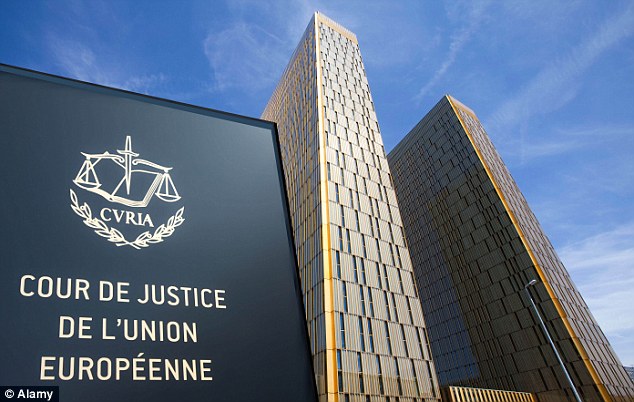How employee-led initiatives are positively impacting LGBTI equality

LGBTI staff groups organise social events for LGBTI staff and allies, raise awareness and push for more inclusive employment policies within their companies, but can also have an important role in supporting LGBTI activism
Increasing numbers of companies across Europe have LGBTI employee groups, sometimes known as LGBTI Employee Resource Groups or ERGs, providing supportive peer network for LGBTI staff members. Company leadership’s support for LGBTI staff groups is an indicator of the company’s values and commitment to diversity & inclusion. Support can look like official recognition of employee groups, allocating budget for activities, showing up and hearing issues raised, and committing to respect the rights of LGBTI people throughout the company’s operations.
It’s important that activities and support don’t stop at the company walls. Employee-led initiatives can have a positive impact not only on company culture but in broader society and for the LGBTI movement.
Employee-led initiatives at businesses across sectors are increasingly supporting the vital work of ILGA-Europe, as demonstrated in our freshly updated and launched ‘Partnership for Equality’ guide for companies. Initiatives can be serious, fun, innovative and really contribute to employee engagement on top of having a positive impact for the cause.
Examples of employee-led initiatives
For example, Toyota Motor Europe’s LGBTI staff group, called ‘All Colours of the Rainbow’, hosted a range of events to celebrate 2023 Pride, including taking part in the Brussels Pride march and throwing a fundraising drag show at their headquarters offices benefitting ILGA-Europe.
The Ipsos Pride Network organised an internal webinar, inviting a guest speaker from ILGA-Europe to talk about the situation for LGBTI rights across Europe, helping to raise awareness among colleagues.
Meanwhile, the team at easyJet also organised an online talk on LGBTI rights across Europe, with a speaker from ILGA-Europe, to raise awareness of the situation for LGBTI communities especially in the countries to where the airline flies. On a more fun note, the team also organised a bake-sale, dress-up day and gave colleagues the chance to have a go on a dance machine, all to raise money for ILGA-Europe.
Many companies have in place employee giving programmes, in which they match charitable donations made by employees. ILGA-Europe has benefitted from matched donations by employees from Google, Netflix, F5, Spotify, TripAdvisor, Apollo and many more. A wonderful example of making the most of employer matching comes from Hue, WP Engine’s LGBTQIA+ Employee Resource Group, who marked Pride with a range of activities from charity talks to a poetry slam and dance party. ILGA-Europe was one of their chosen charity beneficiaries for Pride, and WP Engine generously offered to match employee donations.
If you’re part of an LGBTI employee network, or inspired to start one, you can find more inspiring examples and tips for getting involved in ILGA-Europe’s Partnerships for Equality guide.
After Polish Case, CJEU Rules to Protect Self-employed Workers based on Sexual Orientation

With EC infringement procedure against Poland still outstanding, the Court of Justice of the European Union (CJEU) has ruled that sexual orientation cannot be a reason to refuse or conclude a contract with a self-employed worker.
In December 2017, a self-employed worker and his partner published a music video on YouTube aimed at promoting tolerance towards same-sex couples. Shortly after the video went public, the worker’s shifts were unilaterally cancelled by his employer, Poland’s public television channel. Subsequently, no new contract for specific work was concluded with him.
For seven years up to release of the video, the freelancer had prepared audiovisual material for TP, a company that operates a nationwide public television channel in Poland. Considering himself to be a victim of direct discrimination based on his sexual orientation, the worker brought an action for compensation before the District Court of Warsaw.
The District Court sought guidance from the CJEU, wanting to know whether the EU Directive 2000/78 on equal treatment in employment and occupational activities precludes Poland’s national legislation. That legislation allows an employer not to conclude or renew a contract with a self-employed worker, based on that person’s sexual orientation, on the basis of the freedom of choice.
The EU Directive 2000/78, which covers a wide range of occupational activities, establishes a general framework for combatting discrimination based on sexual orientation. Therefore, the court was tasked with deciding whether the situation the self-employed worker found himself in fell under the directive.
In its judgement delivered today, the CJEU holds that the Directive 2000/78 must be construed broadly, covering the access to any occupational activity, even if the worker is self-employed under contract with an employer.
The Court noted that the directive seeks to eliminate, on grounds relating to social and public interest, all discriminatory obstacles to access to livelihoods and to the capacity to contribute to society through work, irrespective of the legal form in which it is provided.
According to ILGA-Europe’s Head of Litigation, Arpi Avetisyan, “Today’s judgement is another important step forward in strengthening the protection against discrimination in the workplace. The judgement clarifies that EU law protects from discrimination based on sexual orientation also for self-employed and thus reinforces the protection against discrimination equally for the self-employed across the EU. The judgement is especially crucial for LGBTI people in those municipalities in Poland which still have anti-LGBTI resolutions or family charters in place. We hope that Polish authorities will take the necessary steps to implement this judgement swiftly and make it a reality.”
In the summer of 2021, the European Commission (EC) announced infringement procedures against Poland and Hungary for the violation of fundamental rights of LGBTI people and non-cooperation on the matter. While the Hungarian case has been forwarded to the CJEU, the Polish case, despite theoretically being on the same institutional timeline, has not been brought to the CJEU yet, and no up-date is available at this moment of time.
“For years now, we have been observing some EU member states consistently testing EU democracy and the protection of the rule of law and fundamental rights. The infringement procedures sent a clear signal that enough is enough, and the EC needs to see it through.”
Katrin Hugendubel, Advocacy Director, IlGA-Europe
According to ILGA-Europe’s Advocacy Director, Katrin Hugendubel: “In opening infringement procedures, the EC finally clearly stated that the Polish government is violating fundamental rights and that the EC cannot tolerate such violation and the unwillingness of the government to engage in sincere cooperation.
“Even if a few regions have withdrawn the so-called ‘LGBT free zone’ declarations, the discriminatory declarations still prevail on municipal, local and also regional levels. In order not to lose credibility, the EC needs to follow through the infringement procedure and to ensure that all such discriminatory resolutions are repealed.
“For years now, we have been observing some EU member states consistently testing EU democracy and the protection of the rule of law and fundamental rights. The infringement procedures sent a clear signal that enough is enough, and the EC needs to see it through.”
Sexual orientation is not a reason to terminate a contract with a self-employed worker, says Advocate General of the CJEU

Today, the Advocate General of the CJEU has issued an opinion in the case of J.K. vs the Polish public broadcaster company TP, stating that discrimination based on sexual orientation in employment is not acceptable under EU law.
ILGA-Europe welcomes the Advocate General of the Court of Justice of the European Union’s (CJEU) opinion, published today in the case C-356/21, concerning the refusal to continue a contract of work with a self-employed person on the basis of that person’s sexual orientation violates EU law.
The applicant, J.K., is seeking compensation from the Polish public broadcaster TP for the breach of the principle of equal treatment on the grounds of sexual orientation in the form of direct discrimination in the context of the employment relationship between the two parties. J.K is openly a member of LGBTI community, and together with his partner, he engages in the activism for LGBTIQ+ rights, including running a popular YouTube Channel.
The Defendant is the Polish public broadcaster TP, a nationwide public TV network fully owned by the State Treasury. During 2010 – 2017, the employment relationship between the Applicant and the Defendant was based on regularly concluded, consecutive short-term contracts for specific work.
In December 2017, the Applicant and his partner released a Christmas video on their YouTube Channel, where they appeared among other members of the LGBTIQ+ community. Two days after the video was posted, the Applicant received an e-mail from his immediate supervisor cancelling his scheduled shifts. He was also informed that the Defendant was not planning to cooperate with the Applicant any longer. He was replaced by another employee, who had neither the qualifications nor the experience to perform the tasks previously performed by the Applicant.
In her opinion the Advocate General firstly confirmed that self-employment is covered under the Directive and by covering the area of ‘employment and occupation’, the “Directive aims at enabling citizens to realise their potential and earn their living by providing their work”. Furthermore, in addressing the issue concerning “conditions for access to self-employment”, the AG suggests that the Directive covers both initial stage of concluding a contract, but also the provision relating to the termination of contractual relationship. At all stages, discrimination based on sexual orientation is not acceptable.
According to Arpi Avetisyan, Head of Litigation with ILGA-Europe: “Advocate General Capeta’s opinion is a welcome confirmation that discrimination based on sexual orientation has no place under the EU Directive, including for self-employed workers. We hope the Court will follow the Advocate General’s opinion and build on it so that EU law in this area protects self-employed workers ensuring equal access to employment. Freedom to choose a contracting party does not imply freedom to discriminate.”
Alarming new research shows how LGBTI people are affected every day by inequality

Recent data shows that LGBTI young people perceive the labour market with fear and that most of LGBTI youth living with their families have experienced violence in different parts of Europe. These are among the alarming facts related to the impact of inequality and oppression in LGBTI communities, as identified through ILGA-Europe’s No One Left Behind initiative.
We all may experience highs and lows along our working lives or struggle to find the apartment of our dreams, but chances are that LGBTI people will encounter greater obstacles when looking for job or a home. These are some of the conclusions from the research carried out by grantees of ILGA-Europe’s No One Left Behind fund.
The No One Left Behind fund supported projects addressing socio-economic barriers for LGBTI communities in Europe and Central Asia. Launched in 2020, after the breakout of the global COVID-19 pandemic, the program aimed to enable LGBTI groups and organisations to develop long-term responses to underlying causes of inequalities and oppression, which increase the vulnerability and marginalisation of LGBTI people, especially in times of crisis.
Thanks to No One Left Behind, a number of organisations in Europe and Central Asia mapped the ways in which social and economic inequalities affect the livelihoods of LGBTI people, in particular when these are aggravated by a crisis such as the COVID-19 pandemic. However, these conclusions are only the tip of the iceberg, as there is a real gap in data. Even if comprehensive research is lacking, available evidence already points to the urgency of collecting more information and, above all, taking more action to address the inequalities LGBTI people experience.
Based on the No One Left Behind research, here is a glimpse of the current lived realities of LGBTI people in different parts of Europe:
Access to Employment
? Public officers in access to employment institutions are unaware or not prepared to provide services for LGBT people, and in some cases are homophobic (Kosovo).
? There are high rates of unemployment among marginalised groups such as Roma LGBT people (Serbia).
? LGBTI young people perceive the labour market with fear. Often, they have grown up in homophobic or transphobic families who do not accept them. Schooling experiences are marked with homophobia and transphobia (Romania).
? 25% of interviewed LGBTI youth say that in the absence of a workplace they no longer have money for basic needs, including medical services (Romania).
Safe housing
? On-and-off homelessness is prevalent among surveyed LGBT refugees. Some interviewees reported to sleep at friends’ and changing their location every two days in order to avoid bigger shelters, because of their fear of discrimination (Austria).
? Duration of homelessness among LGBT refugees is typically six to ten months (Austria).
? More than half LGBT youth aged 16 to 29 interviewed live at their family’s home and the majority have experienced some kind of violence (Slovenia).
? 78% of interviewed LGBT youth aged 16 to 29 do not understand their situation as inadequate, although they fit the criteria for inadequate housing (Slovenia).
Trans
? Trans sex workers communities are harshly impacted by violence, exclusion and suicidal ideation (Greece).
? Up to 18 out of 50 trans people surveyed were required to remove their internal genital organs. This was evaluated as very problematic. To require this intervention also prevented persons who wished to transition from doing so (Slovakia).
? Trans people often face issues in their transition due to the lack of preparation of authorities (Slovakia).
LGBT refugees
? The main obstacles encountered by LGBT refugees when seeking support are language barriers and discrimination (Austria).
? 20% of interviewed LGBT refugees receive social benefits. 80% receive support only from individuals from the LGBTIQ community (Austria).
? 95,1% of interviewed LGBT asylum seekers feel depressed and have trouble sleeping. 87% feel anxiety on a regular basis and 41,5% are hopeless about their future (Greece).
? 41% of interviewed LGBT asylum seekers have stated that they have engaged in sexual actions in exchange for food, housing and/or money (Greece).
ILGA-Europe welcomes judgement from the Court of Justice of the European Union saying that a homophobic statement on an Italian radio show constituted discrimination in employment

In a judgement delivered on 23 April 2020, the European Court of Justice (CJEU) held that statements made by a lawyer during a radio programme, saying he would never recruit a “homosexual” or wish to use the services of such persons, fall within the material scope of EU Directive 2000/78 (‘the anti-discrimination directive’).
he case was brought by Rete Lenford Avvocatura Per I Diritti LGBT (Lawyers For LGBT Rights), an association of about 150 lawyers founded in 2007 to take representative action on the behalf of LGBT people before national and international jurisdictions, and to ensure enforcement of LGBT rights in Italy.
Having taken the view that that lawyer had made remarks constituting discrimination on the ground of the sexual orientation of employees, Rete Lenford brought proceedings in the Italian courts against him for damages. The action was successful at first instance and the ruling was upheld on appeal. The lawyer went on to appeal before the Italian Supreme Court of Cassation, which then sought a preliminary ruling from the CJEU on the interpretation of the concept of ‘conditions for access to employment … and to occupation’, within the meaning of the anti-discrimination directive.
Importantly the Court noted that the lawyer’s statements may fall within the ambit of the anti-discriminiation directive, even if no recruitment procedure had been opened or planned at the time when the statements were made, where the link between the statements and the conditions for access to employment is not hypothetical.
Because discriminatory statements can have a chilling effect on prospective employees, therefore difficult to have an identifiable victim, the Court noted that where national law provides relevant conditions, an association, as in this case Rete Lenford, may bring legal proceedings for a finding of discrimination and for a sanction to be imposed.
Welcoming the judgement, Senior Litigation Officer with ILGA-Europe Arpi Avetisyan said: “I’m extremely pleased that CJEU reaffirmed protection against homophobia in employment and made clear that discriminatory statements in employment and occupation under the EU law are strictly prohibited. The Court sent a strong message that EU law does not tolerate discrimination based on sexual orientation and safeguards “the principle of equal treatment in employment and occupation, and the attainment of a high level of employment and social protection”. Congratulations to Rete Lenford on the victory and for setting an important milestone in clarification of EU law.”
According to Miryam Camilleri, President of Avvocatura per i Diritti LGBTI – Rete Lenford: “We are overwhelmed by this result. This Judgement represents a great advancement in the enforcement of the protection of LGBTI rights in the EU and in each European Country – the re-affirmation of the right not-to-be-discriminated against and the empowerment of many fights conducted in the name of LGBTI individuals. At the same time, we are particularly honored to have provided the opportunity for the Court to take this historic decision. It’s implications expand beyond the boundaries of LGBTI rights, and serve the interests of associations and NGO’s working in other discriminated against sectors.”
- Find out more about the case and the Associazione Avvocatura per i diritti LGBTI – Rete Lenford.
- Find out more about our strategic litigation work.
- Find out more about the judgement and read the full judgement here.
For comment, contact Arpi Avetisyan, Senior Litigation Officer with ILGA-Europe at arpi@ilga-europe.org
Voices of ILGA-Europe: Meet Italian legal eagle, Emiliano Ganzarolli

The Court of Justice of the European Union has just made a landmark decision, saying that a lawyer who declared that he would never hire a “homosexual” person in his law firm was discriminating under an EU employment directive. Meet activist Emiliano Ganzarolli, from the powerhouse group of LGBT lawyers who took the case.
Emiliano Ganzarolli is a member of Rete Lenford Avvocatura Per I Diritti LGBT (Lawyers For LGBT Rights) an association of about 150 lawyers founded in 2007 to take representative action on the behalf of LGBT people before national and international jurisdictions, and to ensure enforcement of LGBT rights in Italy.
The association has notably been active in the fight for marriage equality, and the implementation of a civil partnership framework for same-sex couples.
“In 2007 there was nothing in the Italian law concerning either civil unions or marriage and the association itself was actually founded because of this lack in our system,” says Emiliano in an interview filmed for the Voices of ILGA-Europe project last October. “It brought together lawyers and activists from the civil society to bring cases up to the constitutional level. In 2010 the constitutional court was asked to deliver a judgement on the possibility or not to have equal marriage in Italy. The case was not successful, we still don’t have equal marriage in Italy, but that was the beginning of many battles the association took.”
Recently, the Association was involved with the first case in Italy involving discrimination in an employment context, after an attorney declared during a radio interview that he would never hire a homosexual person in his law firm.
The case was brought in front of a tribunal in the Court of Appeal by Rete Lenford. “It was successful in the first instance, and the second, and then the case was appealed in front of the Supreme Court in Italy,” Emiliano explains. “The Supreme Court referred the case to the Court of Justice of the European Union (CJEU).
“When we received the communication that the Supreme Court had referred the case to the CJEU, it was the immediate reasoning to involve an umbrella association, somebody able to actually properly talk at the same level with the European institutions. So it came naturally to involve ILGA-Europe in this. ILGA-Europe’s litigation department has been extremely supportive, especially putting us in contact with the other EU countries.”
Two distinct questions arose before the Italian Supreme Court: Firstly, does legislation prohibiting discrimination in access to employment also cover a general statement made on the radio to the effect that the interviewee would not recruit homosexuals to his law firm? Secondly, in the absence of an identifiable victim, is it possible for Rete Lenford to seek to enforce the prohibition of discrimination in employment and occupation, including through the award of damages?
In a judgement delivered on 23 April 2020, the CJEU decided on behalf of Rete Lenford. Importantly the Court noted that the lawyer’s statements may fall within the ambit of the European Union anti-discrimination directive, even if no recruitment procedure had been opened or planned at the time when the statements were made.
Because discriminatory statements can have a chilling effect on prospective employees, therefore difficult to have an identifiable victim, the Court noted that where national law provides relevant conditions, an association, as in this case Rete Lenford, may bring legal proceedings for a finding of discrimination and for a sanction to be imposed.
Welcoming the judgement, Senior Litigation Officer with ILGA-Europe Arpi Avetisyan said: “I’m extremely pleased that CJEU reaffirmed protection against homophobia in employment and made clear that discriminatory statements in employment and occupation under the EU law are strictly prohibited. The Court sent a strong message that EU law does not tolerate discrimination based on sexual orientation and safeguards “the principle of equal treatment in employment and occupation, and the attainment of a high level of employment and social protection”. Congratulations to Rete Lenford on the victory and for setting an important milestone in clarification of EU law.”
ILGA-Europe’s response to the EC’s request for input regarding the implementation of Article 9 of Council Directive 2000/78/EC
This submission, collated by ILGA-Europe, includes various concerns regarding the implementation of Article 9 of Council Directive 2000/78/EC of 27 November 2000 establishing a general framework for equal treatment in employment and occupation. It also elaborates how the absence of class action and the NGO’s inability to pursue test cases without the identification of a victim limits the impact of the Directive.
In preparation towards this paper, ILGA-Europe launched a call to its EU-based member organisations to collect fresh evidence of inadequate implementation and we received responses from Austria, Germany, the Netherlands, Poland, Spain, Sweden and the United Kingdom with a varying level of detail. However, in spite of our best intentions, we were not in a position to prepare a paper which provides an exhaustive list of concerns and implementation breaches. This is due to many reasons, including the fact that in several countries NGOs are unable to represent victims of discrimination due to legal, administrative or other barriers, and also the fact that not all organisations have the required resources to represent cases adequately.
In view of this, we call on the European Commission to treat this paper as yet another source of evidence which is to be taken in conjunction with the various reports prepared by the EU Fundamental Rights Agency, reports prepared by the European Network of Legal Experts in the Non-Discrimination Field , the reports by the Council of Europe’s Commissioner for Human Rights , and the expected results from the EU Fundamental Rights Agency’s LGBT survey which will be launched in May of this year.
Report on gender discrimination in employment and access to goods and services
This joint ILGA-Europe and Transgender Europe contribution is being submitted to the European Commission in view of the review of the implementation of Dir 2004/113/EC “in line with the jurisprudence of the European Court of Justice on gender identity and gender discrimination” during 2011; and the review of Dir 2006/54/EC during 2012 as indicated in the Actions to implement the Strategy for Equality between Women and Men 2010-2015.
ILGA-Europe and TGEU recommend to the European Commission to…
- proceed to the review of the implementation of both directives with a particular focus on discrimination based on gender identity and gender expression
- call on Bulgaria, Italy, Liechtenstein, Malta, Poland, Portugal and Romania to amend the restrictive understanding of their national law implementing both directives so as to ensure a minimal protection against discrimination on the ground of gender identity and gender expression
- ask for clarifications to Cyprus, Iceland, Latvia and Luxembourg where the coverage of gender identity and gender expression by national legislation remains unclear
- launch an infringement procedure against those Member States that do not undertake the necessary changes
- undertake a legal analysis of requirements for gender recognition legislation (i.e. change of name and legal gender) and their requirements in Member States towards their compatibility with both directives
- liaise with the Member States to ensure that national equality bodies investigate cases of discrimination on the ground of gender identity and gender expression
- ensure that national authorities and equality bodies give publicity to the coverage of gender identity and gender expression in their anti-discrimination policy
- promote good practices put in place in some of the Member States in the field of gender-based discrimination
- organise „train the trainers? programmes on legal issues designed for Member States
- encourage Member States to organize trainings on discrimination issues for the judges and all the legal officers and national equality bodies? officers (with a particular focus on the situation of transgender and intersex people)
- liaise with DG SANCO to develop measures targeted at improving the access of trans-people towards general health-care provision such as educational programs combating prejudice among medical practitioners and offering guidance on development and implementation of trans-friendly treatment guidelines to all Member States
- commission research on discrimination against intersex people and how to best cover them under the existing EU legal framework.
Going Beyond the Law: promoting equality in employment
The first version of this document, published in 2005, explored the extent to which that promise had been realised. The current edition, significantly revised and updated, looks at the state of transposition of the EU Directive, discusses its limitations and weaknesses in ensuring equality of LGB people in the employment, as well as the experience of LGB people of the legislation.
The introduction in 2000 of the EU Directive prohibiting discrimination in the workplace on the basis of sexual orientation represented an unexpected and much welcomed advance in the progress toward real equality for lesbian, gay and bisexual (LGB) people. The legislation offered the possibility of a transformation in the working life of lesbians, gays and bisexuals. No longer did they need to hide their sexual orientation for fear of harassment or discrimination. Such freedom would enable them to participate fully and openly and thus enjoy better social and professional relationships with their colleagues. Because of the new environment, they would better realise their career potential and bring home concrete benefits for their partners. Such was the promise.
The first version of this document, published in 2005, explored the extent to which that promise had been realised. The current edition, significantly revised and updated, looks at the state of transposition of the EU Directive, discusses its limitations and weaknesses in ensuring equality of LGB people in the employment, as well as the experience of LGB people of the legislation.
An important position taken in the discussions is that legislation is not enough. If equality for lesbians, gays and bisexuals is to become a reality in the workplace, then reacting to inequality is not going to do it. The focus has to be on measures and initiatives that actively promote equality. Employers and trade unions have a central and unique role to play in this respect. Therefore, relying on the testimonials of lesbians, gays and bisexuals with first hand experience, as well as the good practice available, the document points to practical steps that employers and trade unions can be taken to help realise the promise of equality in the workplace.
Going Beyond the Law
ILGA-Europe’s report examines the implementation of the 2000 EU employment equality directive and identifies further needed action to achieve greater equality for LGB people in employment.
The introduction in 2000 of the EU Directive prohibiting discrimination in the workplace on the basis of sexual orientation represented an unexpected and much welcomed advance in the progress toward real equality for LGB people. The legislation offered the possibility of a transformation in the working life of lesbians, gays and bisexuals. No longer need they hide their sexual orientation or fear of harassment or discrimination. Such freedom would enable them to participate fully and openly and thus enjoy better social and professional relationships with their colleagues. Because of the new environment, they would better realise their career potential and bring home concrete benefits for their partners. Such was the promise. In this document we explore the extent to which we have realised that promise.
The document looks at the nature and extent of the legislation’s provisions as well as its limitations and weaknesses. Some of the issues explored include: How effective can legislation be that relies on the determination and commitment of the person who is discriminated against coming forward to make the law active? Is it not better to prevent discrimination before it happens? How are potential victims of discrimination helped to make the law effective?
An important position taken in the discussions is that legislation is not enough. If equality for lesbians, gays and bisexuals is to become a reality in the workplace, then reacting to inequality is not going to do it. The focus has to be on measures and initiatives that actively promote equality. This requires a collective effort on the part of all stakeholders. Relying on the testimonials of lesbians, gays and bisexuals with first hand experience, as well as the good practice available, the document points to practical steps that can be taken to help realise the promise of equality in the workplace.